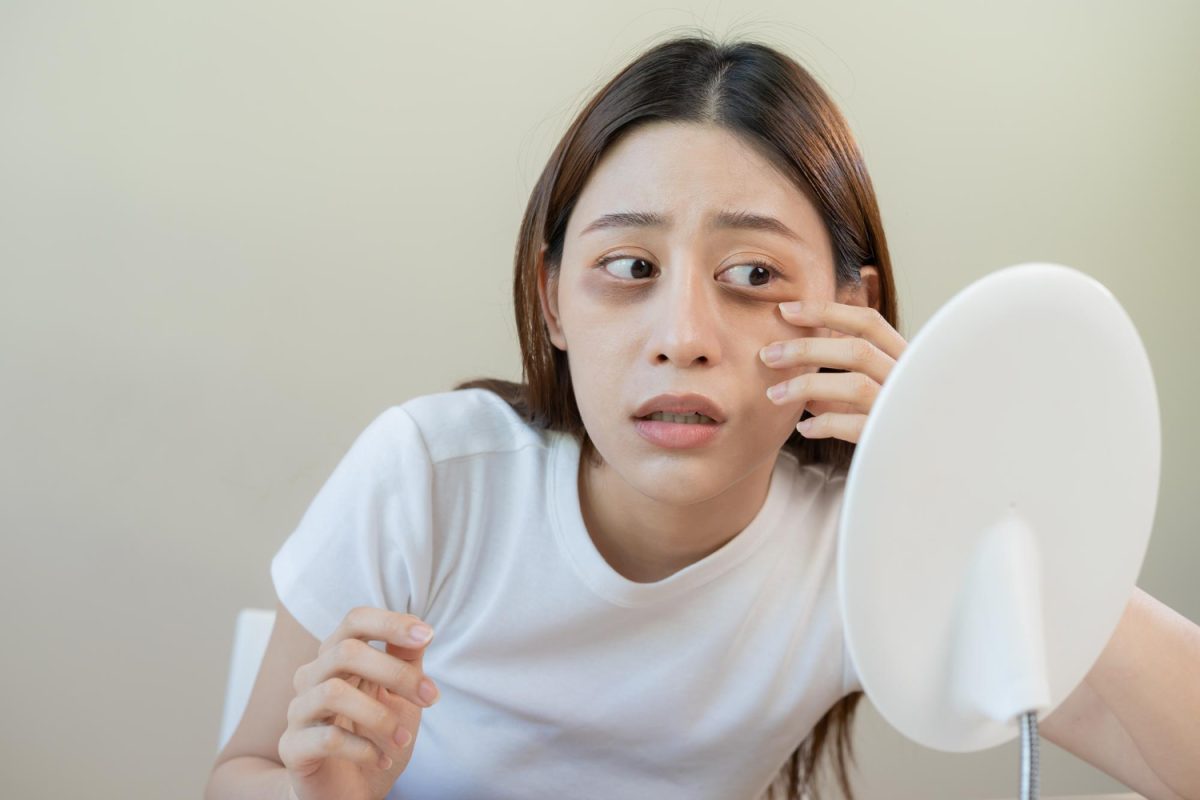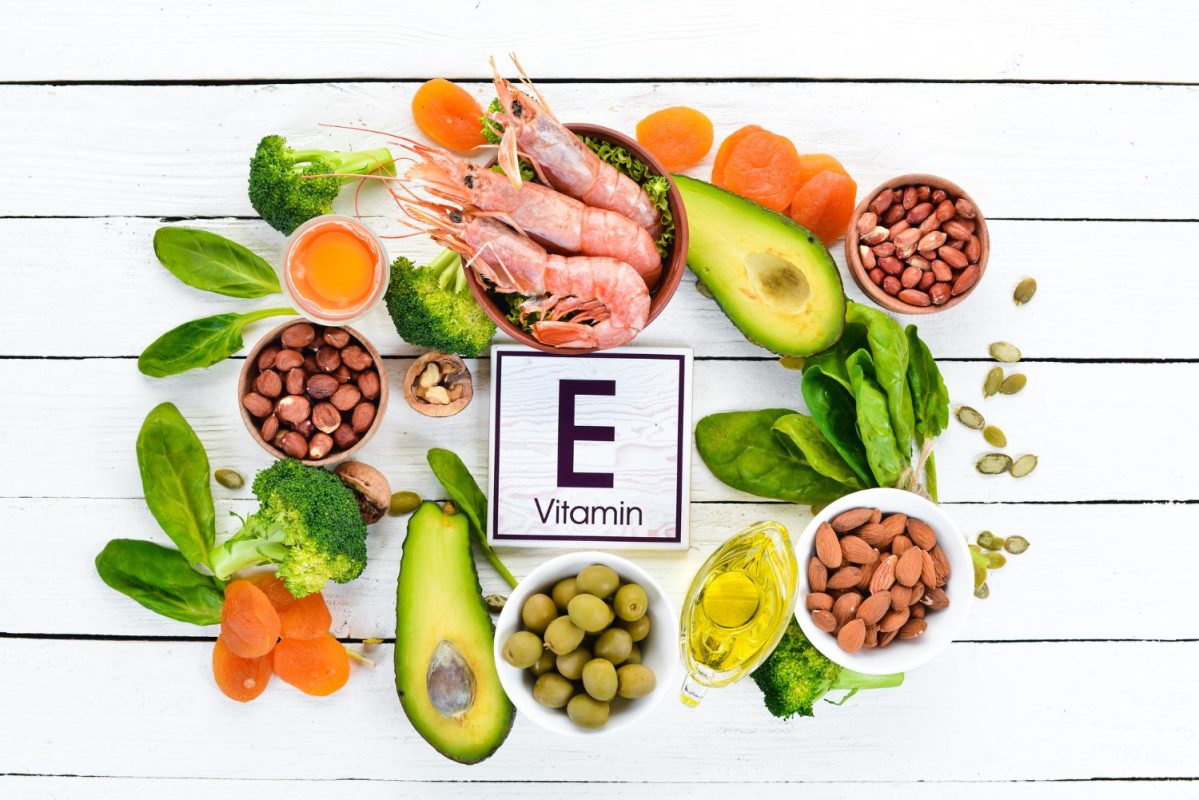Lovini.com, 美肌營養
告別熊貓眼🐼!
Are you struggling with dark under eye circles that just won’t go away despite being well rested and a good skin care routine? You might want to combine certain dietary and lifestyle adjustments can help reduce them!
Three Types of Dark Eye Circles
Pigmented Dark Circles
- Caused by excessive production of melanin under the eyes
Indented Dark Circles
- The hollow of the eyes makes the contours of the eye socket more visible
Vascular Dark Circles
- Mostly caused by dilated blood vessels, which affect blood circulation to the eyes
- As skin around the eyes is thin, the dark blood vessels show through
- Usually caused by nasal allergies and sleep deprivation as they often worsen blood circulation

Nutrition for Dark Eye Circles
Vitamin A
Vitamin A aids in skin cell regeneration, potentially improving skin tone.
Sources of Vitamin A: Orange and Red-colored Vegetables such as Carrots and Pumpkins.

Vitamin C
Vitamin C is beneficial for improving dark circles as it aids in the production of collagen in the body, enhancing skin elasticity and lightening dark circles. Additionally, it can reduce melanin production in the skin, thus minimizing the appearance of dark spots.
Sources of Vitamin C: Citrus Fruits, Strawberries, Potatoes, and Bell Peppers.

Vitamin E
Vitamin E is an antioxidant that protects the skin from damage caused by free radicals, contributing to overall skin health and reducing the formation of dark circles.
Sources of Vitamin E: Vegetable oils like Sunflower and Corn Oils, Nuts and Seeds (such as Almonds, Hazelnuts, Sunflower Seeds), Green Leafy Vegetables.

Omega-3 Fatty Acids
Omega-3 Fatty Acids help maintain the skin’s natural lipid barrier, preventing moisture loss. This barrier locks in moisture, keeping the skin hydrated and reducing skin inflammation, thus benefiting the overall appearance of the skin and diminishing dark circles.
Sources of Omega-3 Fatty Acids: Fish and Seafood (such as Salmon and Sardines(, Nuts and Seeds (such as Flaxseed and Walnuts) and Plant oils (such as Flaxseed oil and Canola oil)

Protein
Protein contributes to skin structure and elasticity, thus helps to alleviate dark circles.
Iron
Iron deficiency can lead to anemia, causing the skin to become paler and dark circles to be more pronounced. Ensuring an adequate intake of iron-rich foods is importnant.
Sources Of Iron: Meat, Fish and Poultry, Leafy Green Vegetables, Fortified Grains, Nuts, Seeds, Legumes
Lifestyle Changes
In addition to dietary recommendations, improving dark circles also requires lifestyle adjustments, such as the following:
Keep Yourself Hydrated
Sufficient water intake helps maintain skin hydration and reduces the appearance of dark circles.
Adequate Caloric Intake
Healthy weight loss should ensure that a diet still includes fruits, vegetables, and low-fat protein. This helps prevent the emergence of dark circles due to rapid weight loss.
Others
Other changes include adequate sleep, avoiding excessive sun exposure, minimize contact with allergens, and avoid excessive rubbing of eyes.
References:
- Inhibitory effect of magnesium l-ascorbyl-2-phosphate (VC-PMG) on melanogenesis in vitro and in vivo. Koichiro Kameyama, MD, PhD., Chie Sakai, MD.,Shigeo Kondoh, MD., Albert Dorsky., Daniel Bucks, Kurt Blanock. CLINICAL AND LABORATORY STUDY| VOLUME 34, ISSUE 1, P29-33, JANUARY 1996.
- Mirnezami M, Rahimi H. Is Oral Omega-3 Effective in Reducing Mucocutaneous Side Effects of Isotretinoin in Patients with Acne Vulgaris? Dermatol Res Pract. 2018 May 29.
- Vrcek I, Ozgur O, Nakra T. Infraorbital Dark Circles: A Review of the Pathogenesis, Evaluation and Treatment. J Cutan Aesthet Surg. 2016 Apr-Jun;9(2):65-72.
- Vrcek I, Ozgur O, Nakra T. Infraorbital Dark Circles: A Review of the Pathogenesis, Evaluation and Treatment. J Cutan Aesthet Surg. 2016 Apr-Jun;9(2):65-72. doi: 10.4103/0974-2077.184046. PMID: 27398005; PMCID: PMC4924417.

